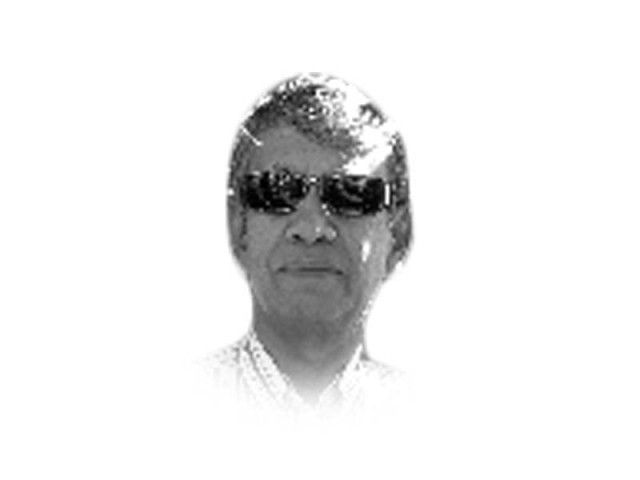At opposite ends of the spectrum
Canada and Pakistan fall within the First World and the Third World, respectively

The writer is an ex-consulting engineer and academic
I was tempted to commence with the transit and traffic system and the commodity prices but that seemed a bit superficial for a more probing analysis. So let us take a more holistic view and begin by asking the question: ‘How is life fundamentally different in Canada?’ While it is not rocket science, when dealing with a systemic view one cannot afford to oversimplify. Nations only advance when people become aware of their human identities, and that comes through the rights granted by the state. In turn, these are protected by adequate legislation across the board to avoid discontent. The primary social institutions include health and education services and it is important to understand the virtuous cycles they trigger. The physical and mental capacity to perform an eight-hour job and the ability to read and understand basic job specifications and instructions are at the root of economic independence. The rest of the material growth process almost takes care of itself. While health services are heavily subsidised, primary- and high-school education is totally free in Canada. Moreover, a minimum literacy and educational level lends parity to collective thought patterns; people feel comfortable in relating to one another as well to the externalities.
Given the institutional infrastructure, regulatory policies and individual competencies, how does it all combine to propel the Canadian economic system? More than 65% of Canada’s GDP accrues from the services sector, which also provides bulk of the employment. There is an interesting side to this, however. The massive influx of educated immigrants over the years has helped provide a solid customer base to develop the services portfolio and at the same time provide the workforce to deliver those services. In particular, this phenomenon has witnessed a huge expansion in the retail and logistics industry. At the same time, there has been an increased demand for services in the real estate, banking, health, school education, transit, catering, and tourism and recreation sectors and these have also absorbed large numbers of workers. But the induction process is typically highly regulated. From cab drivers to crane operators, all need to have adequate training and licences in place. The higher professions like engineering, medicine and law demand a lot more training and qualifications and are highly competitive. This socioeconomic model ensures high levels of lifestyle and great dignity of labour. You simply do not have a situation where a hapless youngster who toils hard for a day cannot even afford to have a Mac Burger or an ice-cream float just because his parents need money to marry off their daughters.
Self-fulfilment, in turn, reflects in very tangible ways. It provides the building blocks for a social paradigm that, at the very least, ensures respect for others and promotes empathy. This spirit and attitude is the bottom line for formal customer service delivery. The lengths to which both public and private sector service providers in Canada go in assuring customer satisfaction is remarkable and refreshing. All the service operations management and business process models I taught at higher education institutions in Pakistan for all those years neatly crystallised into realistic and powerful practical applications, as I began experiencing the service encounters. And I am not ashamed to admit it!
Talking of self-fulfilment, a good school and higher education is a life-long investment that likely pays off in many ways. However, qualifications and degrees are not the ultimate panacea, at least, the way we in Pakistan have come to perceive it. Its pursuit seems relentless, rendering it a huge social and economic burden. I know that people are aware of its intrinsic worth, but what reflects in society in more conscious and forceful ways seem to be the extrinsic worth. The future citizens tend to relate higher degrees with material prosperity but they seldom think of education as a vehicle for intellectual evolution, creative expression and social value creation. Unless these facets are identified as targeted milestones in the educational progression, young professionals will find it difficult to overcome perceived or real inertia at the workplace. Challenges should inspire people to research, write and debate; it should encourage them to seek active solutions to problems in the social context. However, to be thus equipped, the classroom environment needs to be appropriately oriented: what and how to teach; how to test and evaluate; and, finally, how to reward. Perhaps the most effective way to motivate students into active learning is to consistently provide them field experiences. But school education in Pakistan is a farce. What choices do people have: build societies or breed individuals? Sadly, at the end of the day, both will exist in a vacuum.
One might argue it is futile to compare the two systems. May be? But it is not futile because the Canadian model is beyond reach; it may be futile because our own expectations are based on a false premise. Our notions of character often reside in abstractions — sacrifice, piety, subservience and resignation. On the other hand, moral courage demands more objectivity — self-preservation, creativity, assertiveness and confrontation. It is not surprising, therefore, we see little on the social media when prices of commodities rise exponentially. I have hardly seen anybody advocating for boycotting price hikes to exert pressure.
One final point that needs to be conveyed strongly is that none of the Western democratic models interfere with anybody’s personal convictions. Morality is not a constant. Individuals evolve as they experience different things in their personal relationships and can clearly see the purposefulness in each experience. Eventually, it is the sense of ownership of a personal choice or decision that defines the moral yardsticks for personal lives. There are no two opinions, however, that marriage is the ultimate family institution and it will never make sense to redefine or reinvent it; unfortunately, in most Western cultures, including Canada, divorce rates remain appallingly high.
As a well-knit though often temperamental society that prides on traditional family values, we tend to identify with Western culture with strait-laced reservations. This is both myopic and self-defeating. While moral insolvency may interfere with responsible behaviours, it is the institutional and social accountability system that ensures people own responsibility for their actions.
The social mass in every society is non-uniform when it comes to personal whims and fancies, and you will always need a far-reaching system of checks and balances to contain inconsistent behaviour. And this applies in all walks of life. Albert Einstein once remarked that no material progress would ever be achieved as long as there is one unhappy child on the face of earth. How true! But rest assured broken marriages are not the only cause for sufferings of children. Let us begin to be more sensitive to the realities around us.
Published in The Express Tribune, October 24th, 2017.
Like Opinion & Editorial on Facebook, follow @ETOpEd on Twitter to receive all updates on all our daily pieces.














COMMENTS
Comments are moderated and generally will be posted if they are on-topic and not abusive.
For more information, please see our Comments FAQ